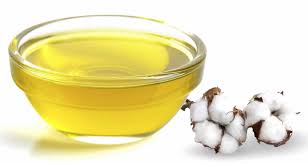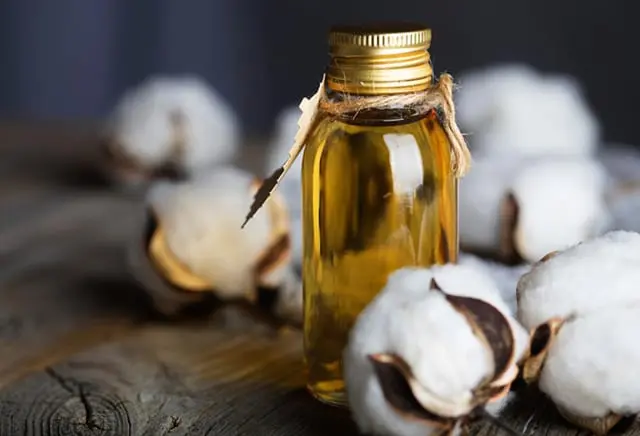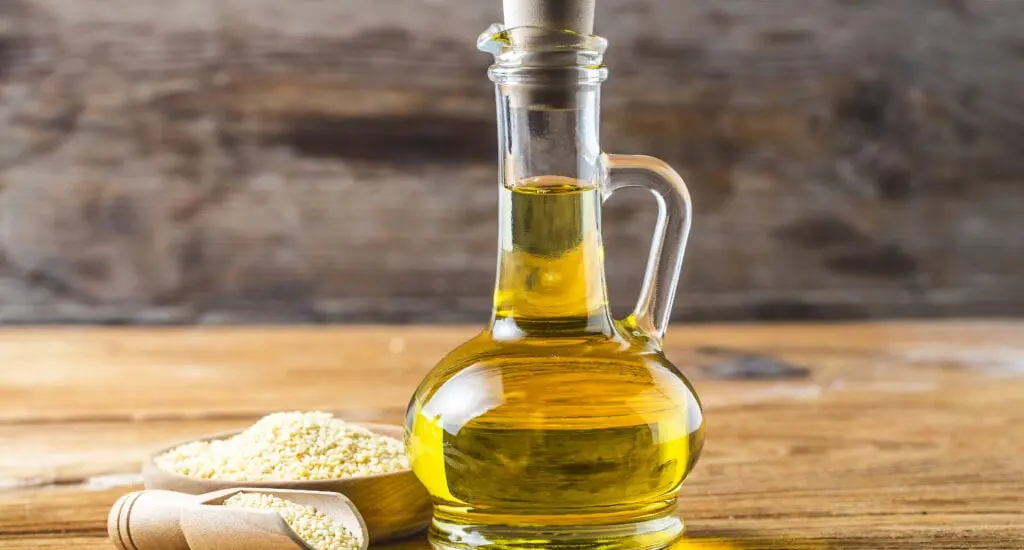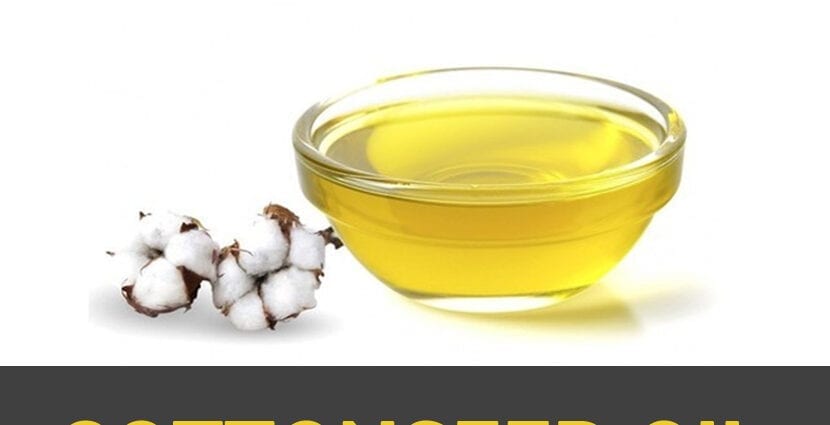Contents
Description
For many of us, it is exotic, although there are places – for example, Central Asia – in which Cottonseed oil is as popular and irreplaceable as our sunflower oil. But the largest consumer and producer of cottonseed oil is the States, where this product has long been loved on a par with peanut oil.
Cottonseed oil is used in the food, chemical and cosmetic industries. On the basis of unrefined oil, drying oil is made. It is also used as lighting, in places where there is lamp oil lighting. Vegetable stearin is also produced from it.
Cottonseed oil is extracted, which is known as Gossypium barbadense and Gossypium hirsutum L. Cotton, first of all, is known to everyone as the main raw material for the production of cotton and cotton fabric. This plant belongs to the Malvaceae family, once it was exported from South America.
Cold pressing is usually used to extract oil. The product yield is 18% of the total weight of the raw material, this is a small percentage and under other circumstances could increase the cost of oil. But getting cottonseed oil is beneficial because the seeds are still considered a waste product from cotton processing.
Raw cottonseed oil smells very strong due to its very high content of non-glyceride components, which give it its characteristic dark reddish brown color. But after refining, the product becomes light and loses its aroma. It is the refined oil that can be eaten.
How to choose Cottonseed oil
When choosing cottonseed oil, experts advise focusing on color, aroma and taste (it should not be bitter). The product should not be too thick, as this indicates improper storage. There should be no oil and sediment, as this indicates that the product has been stored for too long.
How to store
Refined cotton oil can be stored for quite a long time. If during long-term storage in a bottle of oil a precipitate appears in the form of white flakes – do not be alarmed. This is normal, because 30% of the composition of this plant product is solid fats, which settle in the form of flakes over time. If you don’t want to allow sediment to appear, you can store this type of oil at zero temperature – in this case, the product will solidify into a homogeneous mass.
Cottonseed oil In cooking

The healing properties and noble taste of cottonseed oil are best manifested in cooking. If you are not a pastry chef and do not dream of getting an impeccable pastry fat for cakes-pastries-waffles, then you can simply find refined salad oil in the store – its use is very diverse.
The honorable role of cottonseed oil in world cooking is its use for pilaf. Classic mutton, Fergana, wedding and other varied options – all this is prepared in cotton oil. Many say that the unusual cottony flavor can make pilaf a true Asian dish, but there are those who argue that it is too heavy.
Another interesting find is cottonseed oil instead of sunflower oil in pies, buns and tortillas. With it, the dough gets a delicate nutty flavor and becomes very fluffy. Some homemade products play great on cotton fats, for example, eggplant caviar and lecho. And this oil can also be used to dress vegetable salads – the combination with radish is especially interesting.
You can also season sauerkraut, vinaigrette, pickled vegetables. The most popular salad made with cottonseed oil is an apple, cucumber and radish dish. They must be grated, salt and pepper, add a little apple cider vinegar and season with cottonseed oil.
Composition and calorie content

Calorie content Of course, the calorie content of the oil is very high – 884 kcal. Therefore, it should be consumed in moderation.
Nutritional value per 100 grams:
- Protein, 0 g
- Fat, 100 gr
- Carbohydrates, 0 g
- Ash, 0 gr
- Water, 0 g
- Calorie content, kcal 884
The chemical composition of cottonseed oil includes vitamins B, E and PP, monounsaturated and saturated fatty acids, which are the main suppliers of omega-3 and 6 to the body. It should also be noted that the oil is particularly saturated with tocopherols, of which more than 70% belongs to tocopherol A.
Naturally, the composition of cottonseed oil depends on the raw material – on the plant variety and growing areas. However, in any case, saturated, polyunsaturated, monounsaturated fatty acids are found in large quantities in this oil. Due to this composition, cottonseed oil was ranked among the especially useful oils.
Arachidonic and linoleic acids, which are polyunsaturated, are synthesized very little by the body, and cotton oil can compensate for their deficiency.
Useful and medicinal properties of Cottonseed oil
Cottonseed oil is considered an excellent antioxidant, prevents aging, affects the elasticity of blood vessels and the work of the heart. Fatty acids in cottonseed oil have anti-inflammatory and antihistamine properties, and have a positive effect on immunity.

Vitamin E acts as a very powerful antioxidant: it protects against early aging, strengthens the immune system and provides a positive attitude and strong nerves. Fatty acids are able to help the rapid healing of wounds and the resorption of inflammation, fight diabetes, dermatitis, allergies, and heal burns perfectly.
Phytosterols, which are very rich in cottonseed oil, help to reduce cholesterol, dissolve cholesterol plaques, and prevent the development of myocardial infarction and atherosclerosis. They also have the ability to reduce the absorption of cholesterol by the intestines, which reduces cholesterol deposition on the walls of blood vessels.
The unsaturated fatty acids contained in the product belong to fat-soluble vitamin-like substances, which are collectively called vitamin F. They have a pronounced antihistamine and anti-inflammatory effect, restore immunity, and also exhibit wound healing properties.
Together with vitamin D, they help better absorption of phosphorus and calcium, which is necessary for normal bone formation. Indications for the use of vitamin F are diabetes, autoimmune and allergic inflammatory diseases, dermatoses and eczema.
The oil is perfect for the skin of children and adults, restoring full cell metabolism, healing any bites, abrasions and cuts, perfectly nourishing, removing pimples. However, care should be taken with the uncontrolled use of pure cotton oil, as too much of it is not safe.
It is worth noting that for people who are allergic to nut oil, a cotton product can be a perfect substitute for it.
Use of Cottonseed oil in cosmetology
In home and industrial cosmetology, cottonseed oil has long occupied a small but stable niche: it perfectly moisturizes and nourishes the skin, relieves irritation, relieves peeling, and is instantly absorbed. The unsaturated fatty acids in cotton oil are involved in the production of ceramides.
This product is used as a base for homemade balms, creams and masks, as well as in its pure form, as it can cope with many skin problems and dryness, improving its structure and making it more elastic. Butter can be added both to ready-made mixtures and to make up your own, including in combination with essential oils.

Together with olive and other base oils, the cotton product smoothes wrinkles, heals cracks, removes dryness and nourishes the skin with useful vitamins.
One thing but – if you want to wipe your face with this oil or apply masks, keep in mind – it often provokes comedones on the face. Therefore, to prevent oil from clogging pores, dilute it with other oils, various beneficial ingredients, use face scrubs and steaming baths.
Cottonseed oil also enhances the protective functions of the skin by strengthening it and improving its structure. It is a great help when the skin gets rough from frost and wind, showing its softening and regenerating properties and promoting the production of ceramides.
Cottonseed oil is the best transporter for other nutrients, such as essential oils. Due to its rapid absorption, all active substances enter the deeper layers of the skin faster.
One of the legends about cotton assures that the pickers of this plant grew old quickly under the sun, but their hands remained tender and young because of the healing fat seeds.
It is not easy to believe in this – after all, fluffy boxes were collected, not butter, but if you buy a bottle of a cosmetic product, you can definitely feel the healing power for your hands. You don’t have to make difficult masks: you can simply rub the skin with cottonseed oil and wear gloves when you plan to wash the dishes. Half an hour – and your hands will be like from a spa.
For its healing and nourishing properties and its ability to restore cellular metabolism, cotton oil has long been recognized as an excellent hair treatment. It awakens dormant bulbs, activating the growth of hair, and also softens and makes hair manageable, heals split ends well, removes excess oil and returns shine, relieves dryness and inflammation of the scalp.
Dangerous properties of cottonseed oil

There are no products in nature that have no contraindications at all, due to possible allergic reactions to any of the components. Let’s apply this fact to cottonseed oil. You should be careful about the choice of oil: it is possible to use exclusively refined oil for medicinal and domestic purposes, which, in addition to labels, can be identified by its light color.
Unrefined cotton oil is not advised to be eaten due to the presence of gossypol in its composition, a pigment that gives the crude oil a specific brown color. It is capable of inhibiting spermatogenesis and often leads to reproductive dysfunctions, and also blocks the activity of enzymes involved in metabolism.
And although an antitumor effect has now been found behind gossypol, the study of this substance has not yet been completed. Perhaps, cotton gossypol in the future will become a panacea for incurable diseases, but today it should be treated with caution, since an accidental excess of the permissible dose can lead to severe poisoning, even to death.
In the process of oil refining, gossypol is removed, therefore this product is harmless in its purified form. Contraindication to its use is exclusively individual intolerance. As for the allergenicity of this oil, experts agreed that it does not cause allergies even in people prone to such manifestations.











Пахта Майынын Натыйжасы